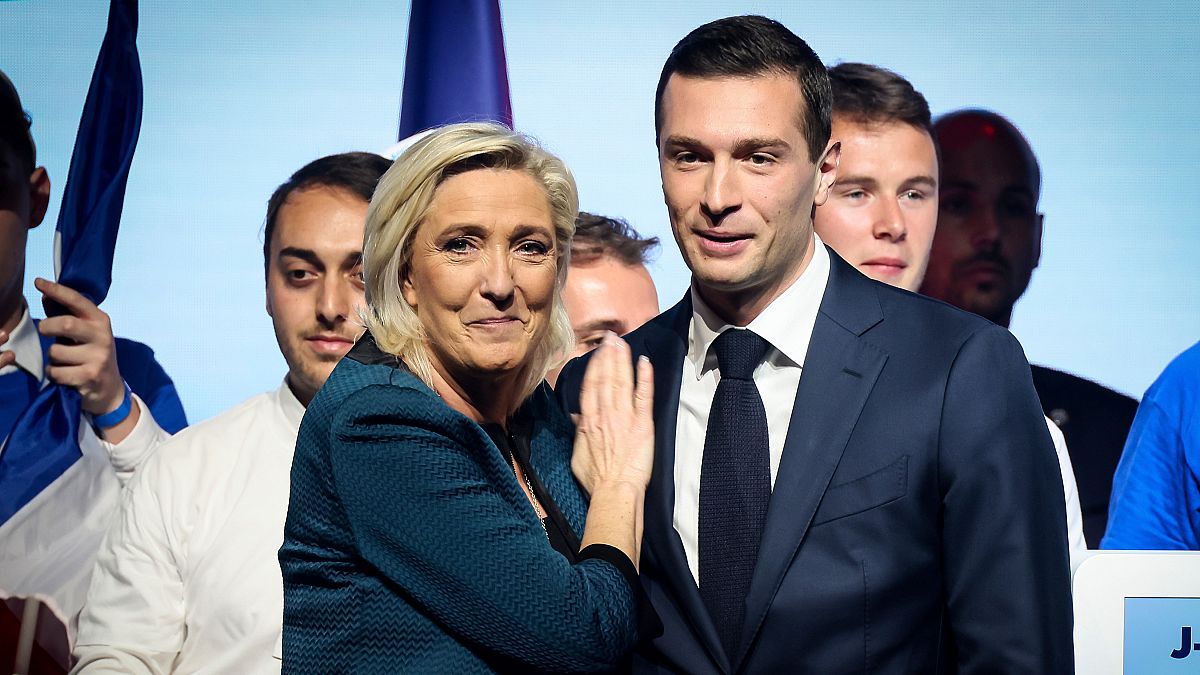Identity and Democracy (ID) group, the far-right political faction in the European Parliament, is considering forming a “supergroup” with the European Conservatives and Reformists (ECR) in order to elevate the far-right to the second-largest force in the EU Parliament. With the National Rally holding the largest representation in the European Parliament with 30 seats, ID finished fifth in the European elections at the political group level, while the European People’s Party (EPP) remains the largest faction. According to Jean-Paul Garraud, chairman of the National Rally delegation to the European Parliament, this rise in sovereignty across Europe is a result of European voters realizing the daily impact of key issues such as immigration and energy.
Garraud mentioned that their focus now is on negotiating with other groups to expand ID, with Marine Le Pen reaching out to Giorgia Meloni to form a “super-group” in the European Parliament. Leaders from the far-right, including Le Pen and Italy’s Matteo Salvini, recently met in Brussels to discuss their strategy. Garraud also mentioned establishing closer ties with Spain’s Vox and Poland’s PiS, but the reintegration of the German far-right party AfD, which was excluded from the ID group in May, is not on the agenda. Garraud expressed his satisfaction that the “cordon sanitaire” limiting the far-right’s influence in the European Parliament has been breached, giving his group more influence over the European agenda.
It is clear that the far-right political groups within the European Parliament are making moves to strengthen their position and increase their influence. By considering forming a “supergroup” with the ECR, the far-right hopes to position themselves as the second-largest force in the EU Parliament, behind the EPP. The National Rally, with its large representation in the European Parliament, is leading this effort, with support and outreach from other far-right leaders such as Marine Le Pen and Matteo Salvini.
The rise in sovereignty across Europe, as mentioned by Garraud, is a key factor in the far-right’s increasing influence. European voters are realizing the impact of important issues such as immigration and energy on their daily lives, leading them to support parties that promise to address these concerns. By expanding their group and forming alliances with other like-minded parties, the far-right hopes to capitalize on this momentum and advance their agenda in the European Parliament.
The exclusion of the AfD from the ID group, as mentioned by Garraud, highlights the complexities and divisions within the far-right political movement. While the focus is on expanding and strengthening the influence of the far-right in the European Parliament, there are still internal disagreements and tensions that need to be navigated. By excluding the AfD, the ID group is signaling that they are selective in their alliances and partnerships, prioritizing those that align closely with their goals and values.
Overall, the efforts of the far-right to increase their influence in the European Parliament are strategic and calculated. By forming alliances and reaching out to other groups, they hope to strengthen their position and have a greater impact on the European agenda. The breaches in the “cordon sanitaire” that previously limited the far-right’s influence are seen as victories for the group, allowing them to have a louder voice and shape policies that align with their vision for Europe. As the far-right continues to collaborate and strategize, their influence in the European Parliament is likely to grow, presenting both challenges and opportunities for the future of European politics.











